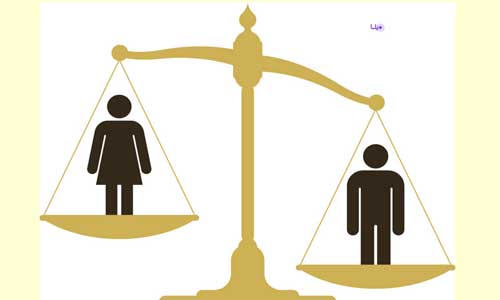This prize will make the voices of women who suffered from sexual violence in conflict heard, especially the women in minorities like my community the Yazidis. It tells us that our voices will be heard,” these words were spoken by this year’s Nobel laureate Nadia Murad in the Norwegian Nobel Committee.
Nadia, a 24-year-old Yazidi woman, was held as a prisoner by the self-styled IS group in northern Iraq when IS fighters rounded up the Yazidi community in the village of Kojo in Sinjar killing 600 people, including six of Nadia’s brothers and stepbrothers. The IS fighters held her as prisoner in the city of Mosul, tortured her and raped her when she was trying to escape.
In 2014, at least 10,000 Yazidis were either killed or abducted during the IS attack on Sinjar, which sparked international outcry and condemnation.
Nadia, carried the plight of her people’s plight and sought to alleviate their sufferings through international support.
The IS group discriminated the Yazidis on the grounds of their religious beliefs and showed no mercy to Yazidi men, women and children. Although the IS lost ground in Iraq, their victims still suffer from trauma.
It is self-explanatory that a large number of women fall the victim of violence or discriminated in one way or another on the grounds of their gender. Radical groups, from Boko Haram in Nigeria to the Taliban in Afghanistan, are widely involved in abusing women and violating their human rights and dignity. They are treating women not on the basis of religious values but based on their fundamental mindset and radical narratives of religion. It should go without saying that their attitude towards women are highly contradictory to religious tenets and prophetic sayings.
Meanwhile, scores of women are discriminated in social, cultural and political arenas in many parts of the world. For example, women bear the brunt of discrimination in Saudi Arabia simply on the basis of their gender. Their freedoms are highly restricted in collective life and they are treated inferior to men. Saudi was ranked 141 out of 144 countries for gender parity by the World Economic Forum’s 2016 Global Gender Gap Report. Although some reforms were taken vis-à-vis women’s rights in Saudi in recent years, there is still a lot to be done. The reforms include very primary rights of women: Granting suffrage in the 2015 local elections and their appointment to Consultative Assembly, being allowed to have access to government services without the need of consent from a guardian and being allowed to drive.
To view Afghanistan, women are constitutionally equal to men in all political arenas and they have the rights to have social, cultural and political activities similar to their male counterparts. However, there are two major challenges. For the one, the Taliban militants still exercise their radical ideology towards women in areas under their domination. They hold out against the social, educational and political activities of women and seek to restrict their role within the four walls of home. In short, women are still deemed inferior to men in the Taliban-dominated areas.
Second, traditional culture and tribal structure in Afghanistan are still an obstacle before women curtailing their freedoms as well as their social and political role. That is to say, restrictive tradition, which is in conflict with both Islamic values and Afghan Constitution, hold sway in tribal belts and villages of Afghanistan.
In an article titled “The Many Dangers of Being an Afghan Woman in Uniform”, an Istanbul-based journalist Sophia Jones writes, “Afghan Independent Human Rights Commission has noted that there are several hundred reports every year of Afghan women dying by domestic violence or “honor killings” in which brothers, fathers or other relatives kill women – and sometimes men – to restore “honor” to the family after a suspected moral indiscretion, like a romantic relationship out of wedlock or a marriage refusal. But many killings and attacks are never reported”.
All in all, the rights and dignity of women are trampled upon across the world. Women are highly susceptible to both radical ideology and traditional culture. All nations are in need of woman like Nadia to raise their voice against misogynistic view and ongoing violence inflicted upon women. Nadia should not voice her concern only about Yazidi women but any women who fall victim to violence and discrimination on the basis of their gender or beliefs. As a Nobel laureate, Nadia has now more responsibilities to shoulder.
Moreover, all states have to practice upon the Universal Declaration of Human Rights and respect the rights and dignity of both men and women equally. Indeed, men and women are free and equal in rights and dignity and it is governments’ responsibility to safeguard their rights and freedoms regardless of their caste, color or creed.
Home » Opinion » Women are Prone to Violence and Gender Discrimination
Women are Prone to Violence and Gender Discrimination
| Hujjatullah Zia

